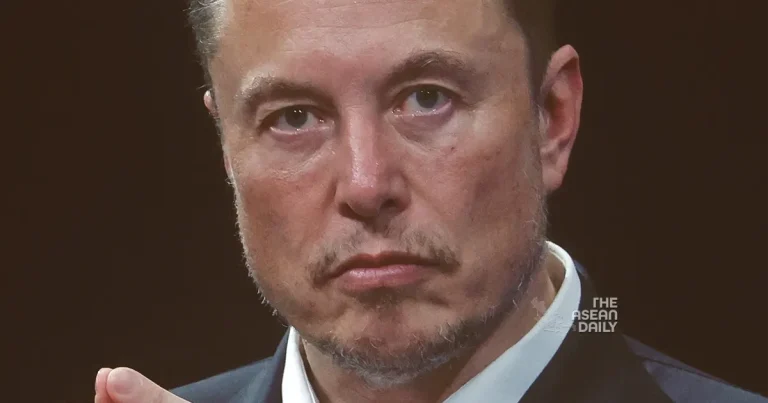28-4-2024 (SHANGHAI) A private jet associated with Tesla’s CEO Elon Musk touched down in Beijing on April 28, revealed by a flight tracking app, as insiders disclosed that the billionaire was embarking on an unexpected visit to the electric car manufacturer’s second-largest market.
Musk aims to hold discussions with senior Chinese officials in Beijing regarding the deployment of Full-Self Driving (FSD) software in China. Additionally, he seeks approval for the transfer of data collected within the country overseas to refine algorithms for Tesla’s autonomous driving technologies, sources familiar with the matter disclosed.
Since 2021, Tesla has adhered to Chinese regulations by storing all data collected by its Chinese fleet in Shanghai and has refrained from transferring any data back to the United States.
Although Tesla introduced FSD, the most autonomous iteration of its Autopilot software, four years ago, it has yet to make it accessible in China, despite demands from customers.
Musk hinted in April that Tesla might soon offer FSD to Chinese customers, responding to queries on the social media platform X.
Rival Chinese automakers, including Xpeng, have been striving to outpace Tesla by introducing similar software.
Musk’s visit to China was not publicly announced, and sources spoke on the condition of anonymity as they were not authorised to speak to the media. Tesla did not immediately respond to requests for comment.
This visit follows Musk’s cancellation of a planned trip to India to meet Prime Minister Narendra Modi, citing “very heavy Tesla obligations.”
In April, Tesla announced a 10% reduction in its global workforce as it grapples with declining sales and fierce price competition in the electric vehicle market, primarily led by Chinese brands.
A Gulfstream private jet bearing the tail number N272BG, registered to Falcon Landing, a company associated with SpaceX and Tesla, landed at Beijing Capital Airport on April 28 at 6:03 am GMT (2:03 pm Singapore time), according to the Chinese flight tracking app Flight Manager.
Tesla’s vice-president for external relations in China, Grace Tao, penned a commentary on the social media account of the state media outlet People’s Daily on April 26, asserting that autonomous driving technologies would drive growth in the EV industry.
Tao highlighted Tesla’s leadership in autonomous driving research and development, leveraging its “end-to-end neural network” technology and data from millions of vehicles on the road.
China’s complex traffic conditions, with a higher volume of pedestrians and cyclists compared to many other markets, offer crucial scenarios for training autonomous driving algorithms at an accelerated pace, industry experts note.
Musk recently announced plans to introduce new, more affordable models using existing EV platforms and production lines, alongside a new “robotaxi” equipped with self-driving technology. He indicated on X in April that he would unveil the robotaxi on Aug 8.
Tesla shares have plummeted by almost a third since the beginning of the year amid concerns about the company’s growth trajectory. Last week, it reported its first quarterly revenue decline since 2020, attributed to production and delivery slowdowns during the Covid-19 pandemic.




